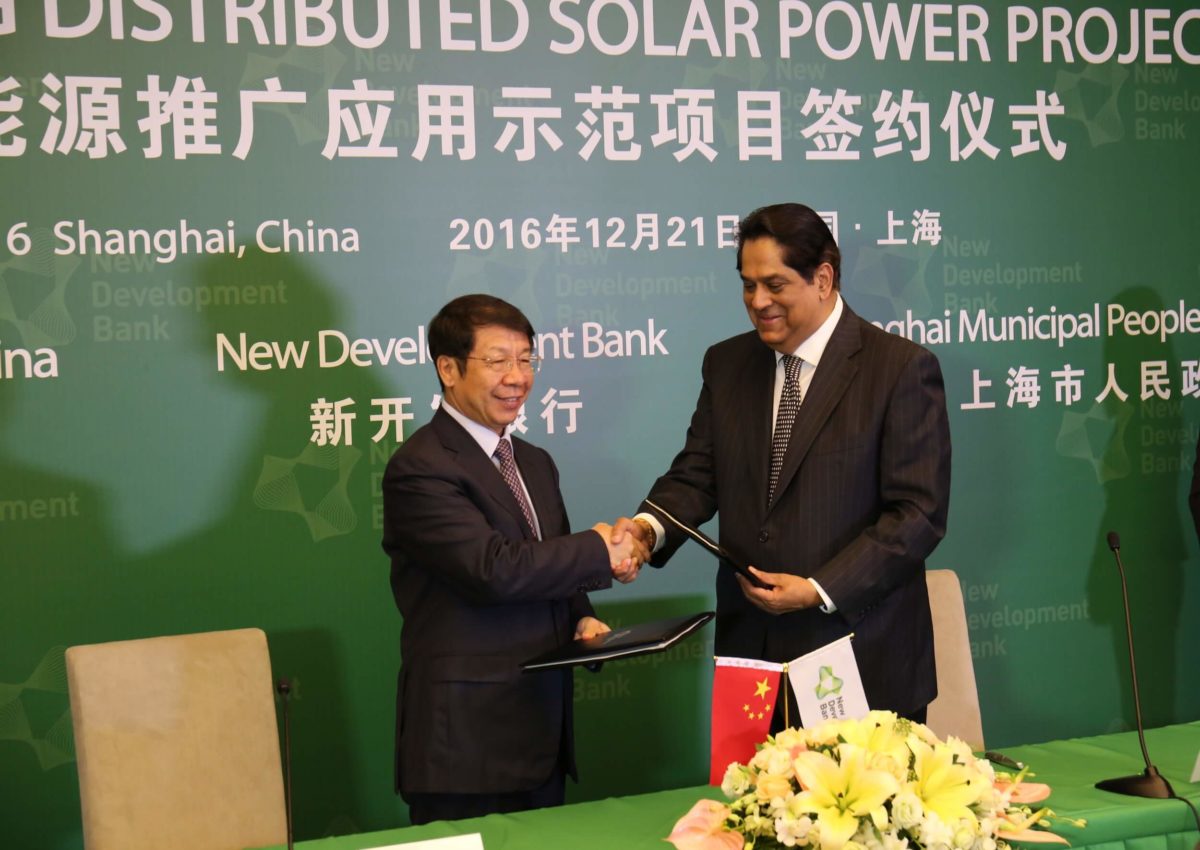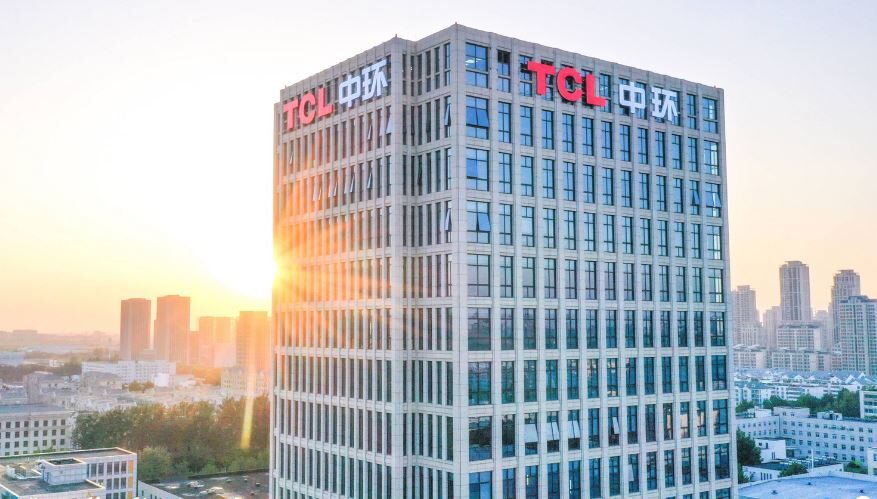The New Development Bank (NDB), which was set up in 2014 as a multilateral development lender among the BRICS nations, has this week signed its first loan agreement in the field of renewable energy.
A total of 525 million yuan ($75.6 million) has been loaned by the NDB to Shanghai Lingang Hongbo New Energy Development Co., to help support the creation of a 100 MW solar PV plant located near to Shanghai, China.
The lending institution – comprised of banks representing Brazil, Russia, India, China and South Africa (BRICS) – was officially launched in 2015 with an initial financing war chest of $100 billion. Since inception, the NDB has already approved seven clean energy investment projects totaling $1.5 billion and supporting the creation of 1.5 GW of renewable capacity across the BRICS nations.
However, this is the bank’s first loan agreement to be formally sanctioned, and was signed on Tuesday by NDB president K.V. Kamath and the vice minister of the Chinese Ministry of Finance, Shi Yaobin.
Speaking after the signing, Yaobin said: “This loan agreement demonstrates the strong commitment of the Chinese government to support NDB in delivering its mandate of promoting infrastructure and sustainable development in members of the bank.”
Kamath called the agreement a seminal event for NDB, adding: “The Shanghai Lingang Distributed Solar Power Project is a good example of forward-looking and green investment. We hope that this project and other projects supported by the Bank will act as catalysts for development in our member states.”
The proposed solar farm will be built in the Lingang Industrial Area, one of six development areas of Shanghai, and will be divided into a handful of smaller sub-projects to be built over the next three years.
This content is protected by copyright and may not be reused. If you want to cooperate with us and would like to reuse some of our content, please contact: editors@pv-magazine.com.



By submitting this form you agree to pv magazine using your data for the purposes of publishing your comment.
Your personal data will only be disclosed or otherwise transmitted to third parties for the purposes of spam filtering or if this is necessary for technical maintenance of the website. Any other transfer to third parties will not take place unless this is justified on the basis of applicable data protection regulations or if pv magazine is legally obliged to do so.
You may revoke this consent at any time with effect for the future, in which case your personal data will be deleted immediately. Otherwise, your data will be deleted if pv magazine has processed your request or the purpose of data storage is fulfilled.
Further information on data privacy can be found in our Data Protection Policy.